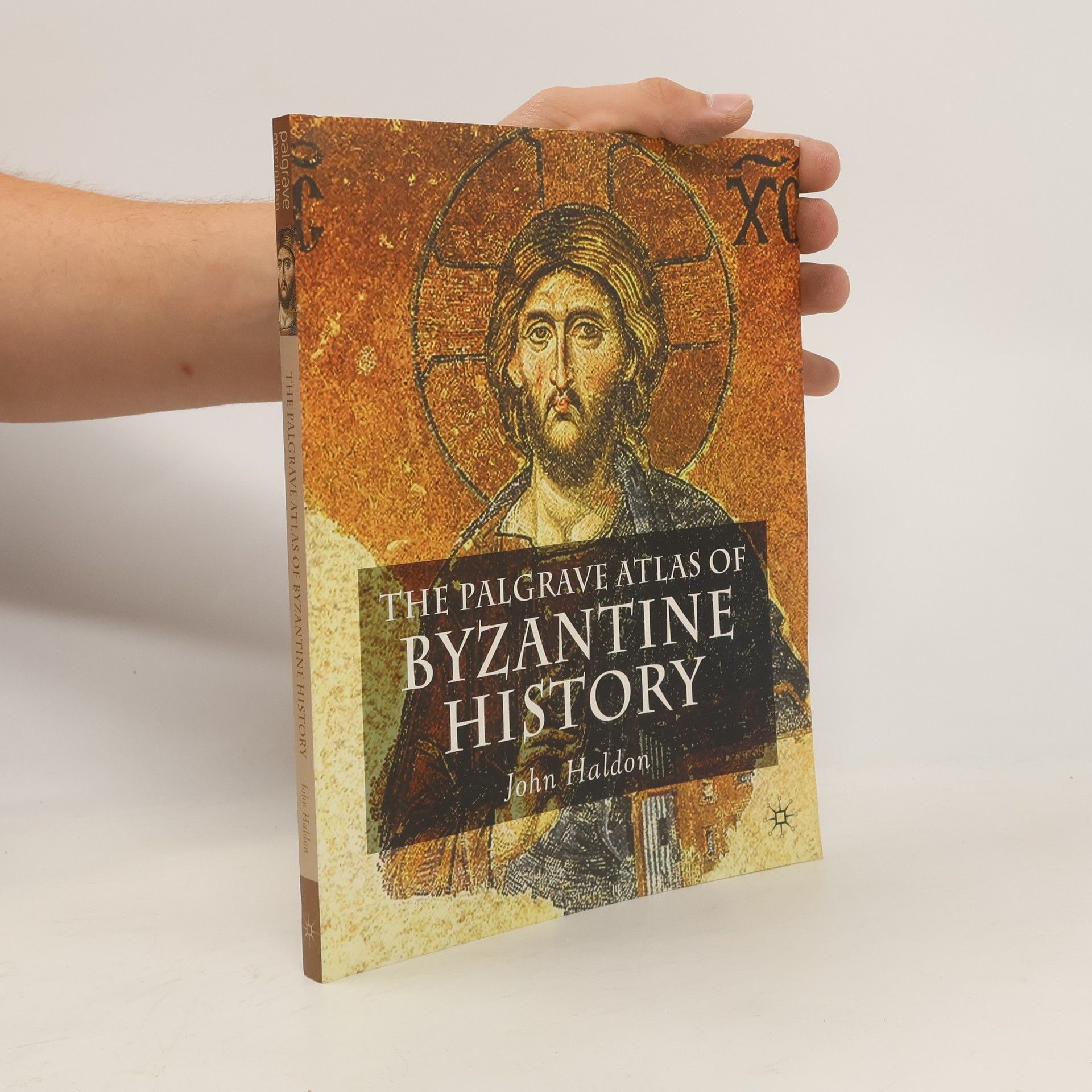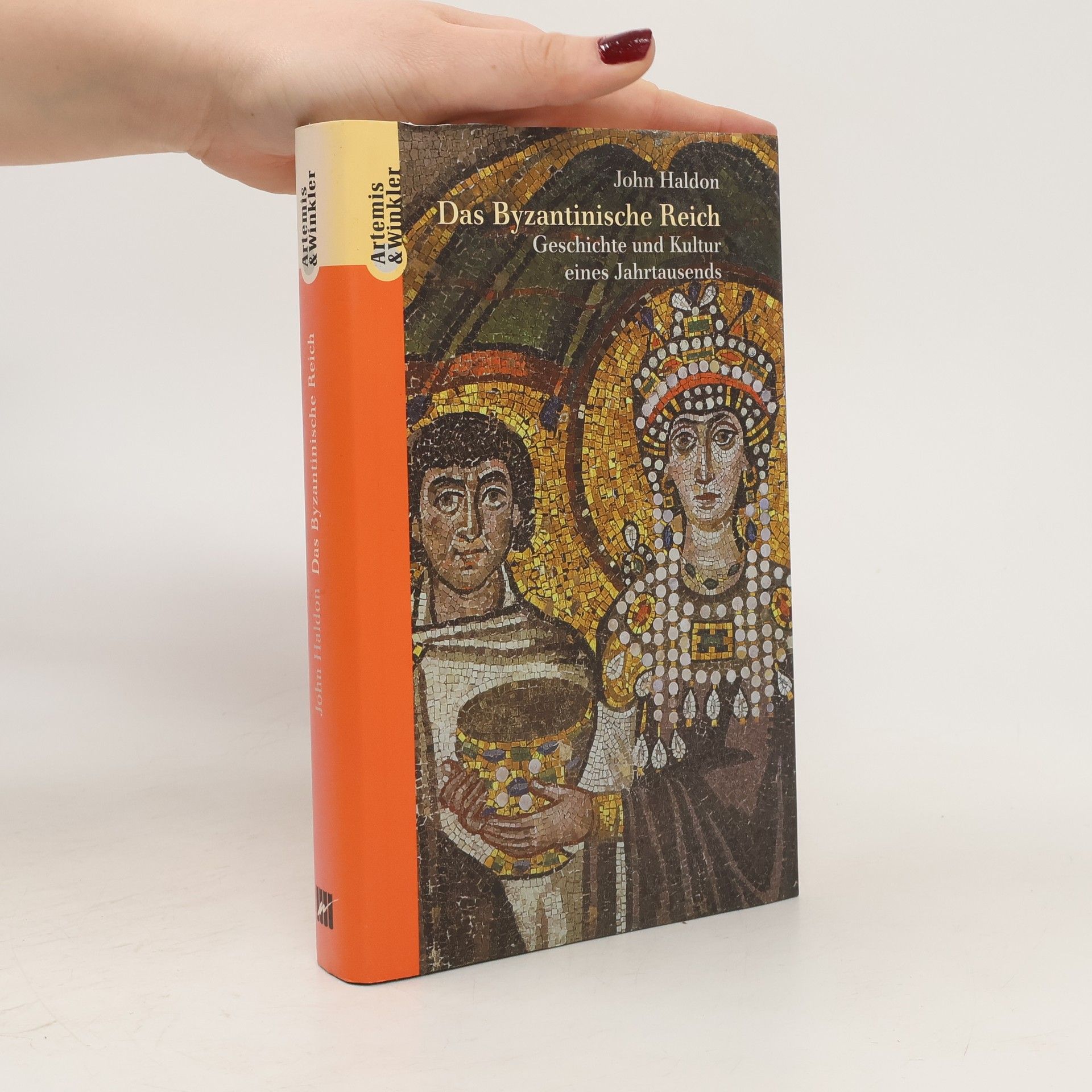The remarkable 1,000-year history of one of the world's greatest and most misunderstood empires
John Haldon Reihenfolge der Bücher (Chronologisch)
John Haldon ist ein renommierter Historiker, dessen Forschung sich mit dem komplexen sozioökonomischen, institutionellen, politischen und kulturellen Gefüge des frühen und mittleren Byzantinischen Reiches befasst. Seine Arbeit erstreckt sich vom siebten bis zum elften Jahrhundert und untersucht die Dynamik politischer Systeme in der europäischen und islamischen Welt von der Antike bis zur frühen Neuzeit. Professor Haldon untersucht akribisch die Produktion, Verteilung und den Verbrauch von Ressourcen, mit besonderem Schwerpunkt auf deren Rolle in der Kriegsführung dieser Epochen. Neben seinen umfangreichen schriftlichen Werken leitet er bedeutende archäologische und historische Projekte, die fortschrittliche Technologien einsetzen, um unser Verständnis vergangener Gesellschaften und Volkswirtschaften zu vertiefen.






Cesarstwo bizantyńskie przetrwało tysiąc lat, wykazując godną uwagi wytrwałość oraz elastyczność organizacyjną i ideologiczną. Chrześcijańskie imperium wytworzyło kulturę zdolną trwać przy pacyfistycznych ideałach, legitymizując zarazem utrzymywanie nadzwyczaj sprawnej armii. To błyskotliwe kompendium prezentuje jedną z najwszechstronniejszych i najbardziej innowacyjnych armii średniowiecza, która musiała stawić czoło m.in. germańskim i słowiańskim plemionom, Persom, Arabom, Turkom osmańskim czy krzyżowcom. Taka różnorodność wrogów wymuszała elastyczność sztuki wojennej, która rozwinęła się w niezwykły sposób. Równocześnie z opisem wojen i bitew autor analizuje taktykę i wyposażenie wojsk Bizancjum, aspekty technologiczne i strategiczne, kwestie logistyki, rolę najemników. Jak dotąd żaden autor nie pokusił się o przedstawienie przeglądu bizantyńskich wojen. Niniejsza książka, oparta na źródłach z epoki, wynikach badań naukowych i wizji lokalnej, pokazuje blaski i cienie militarnych dziejów cesarstwa, rzucając nieco więcej (i może mniej romantycznego) światła na tę niezwykle wyrafinowaną cywilizację. Tekst wzbogacają plany bitew, mapy oraz liczne ilustracje.
Das Buch bietet einen neuen Blick auf das Byzantinische Reich, das über ein Jahrtausend bestand. John Haldon beschreibt die prägende Geschichte, die antike Kultur, das Kaisertum und die orthodoxe Kirche sowie die Begegnungen mit der westlichen Christenheit. Ein fesselndes Sachbuch von einem renommierten Byzanzforscher.
The Palgrave Atlas of Byzantine History
- 200 Seiten
- 7 Lesestunden
This historical atlas explores the Byzantine Empire's political, social, and economic history from the late Roman period to the Middle Ages. It highlights the empire's resilience amid threats and its cultural strength, especially through Orthodox Christianity, featuring over 100 specially designed maps.
Das Byzantinische Reich
- 230 Seiten
- 9 Lesestunden
Byzanz in neuem Licht Das Byzantinische Reich, das mehr als ein Jahrtausend bestand, hinterließ uns ein reiches Erbe. Machtvolle Bauwerke, leuchtende Mosaiken, expressive Fresken zeugen von Ausstrahlungskraft einer großen Kultur am Kreuzungspunkt von christlichem Okzident und islamischem Orient. John Haldon geleitet uns durch die bewegte Geschichte und führt uns die Kräfte vor Augen, die den Kosmos der Byzantiner geprägt haben: das Fortleben der antiken Kultur, der Glanz des Kaisertums, die selbstbewusste orthodoxe Kirche, die Begegnungen und Konflikte mit der westlichen Christenheit. Sein aufmerksamer Blick gilt insbesondere der Gesellschaft und Kultur der Byzantiner. Ein glänzend erzähltes Sachbuch von einem der international renommiertesten Byzanzforscher.
Warfare, State And Society In The Byzantine World 565-1204 (Warfare and History)
- 250 Seiten
- 9 Lesestunden
This work examines the nature of zantine warfare and its relationship with society at large. This is the first comprehensive study of warfare and the Byzantine world from the sixth to the twelfth century. The book examines Byzantine attitudes to warfare, the effects of war on society and culture, and the relations between the soldiers, their leaders and society.
This book presents the first analytical account in English of major developments within Byzantine culture, society and the state in the crucial formative period from c.610-717. The seventh century saw the final collapse of ancient urban civilization and municipal culture, the rise of Islam, the evolution of patterns of thought and social structure that made imperial iconoclasm possible, and the development of state apparatuses--military, civil and fiscal--typical of the middle Byzantine state. Also, during this period, orthodox Christianity finally became the unquestioned dominant culture and a religious framework of belief (to the exclusion of alternative systems, which were henceforth marginalized or proscribed).